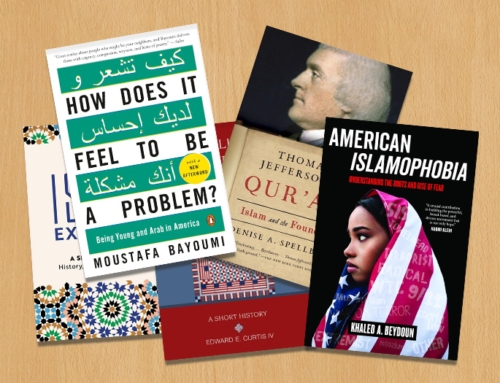Counseling Muslims: A Guide to Respecting Religious Beliefs
Are you a counselor with a Muslim client? There is a growing concern among Muslims that mental health professionals either do not respect their religious beliefs or simply are not aware of basic Islamic values, and thus offer a therapy that is incongruent with their belief system. This article proposes a culturally-informed approach and offers tips to consider when counseling Muslims.
It is important to note that there is no monolithic Muslim culture or “one size fits all” approach to the Muslim client. Muslims in Western countries are ethnically diverse, have different nationalities, sociopolitical histories, and cultural traditions, and they may endorse varying levels of adherence to Islam. As such, counselors should aspire to be culturally sensitive and consider the religio-cultural nuances of their clients.
The Culturally-Informed Mental Health Interview
When counseling Muslims as well as other culturally-diverse clients, it is essential to begin with a culturally-informed mental health interview that assesses relevant cultural factors that may affect the client’s symptoms and clinical course. Counselors should assess the individual’s cultural identity, religiosity, immigration history, acculturative stress, family and community-based psychosocial factors, and their concept of self.
Cultural Identity.
Muslims express their religion through specific cultural norms. For example, modest dress may be observed differently between a Moroccan Muslim woman and a Saudi Muslim woman. Culture is used more as a general term and includes an individual’s race and ethnicity, as well as their religious affiliation, gender, profession, nationality, political affinity, sexual orientation, and family role.
Religiosity.
In addition to having different sectarian affiliations such as Sunni or Shi’a, Muslims may have varying degrees of identification with Islam. The religious commitment of some Muslims could be the result of external (societal or familial) pressure, internal commitment, or some combination of the two. Other topics to explore could include the client’s perceived religious discrimination, the parents’ religious background, the extent to which religious beliefs may promote or interfere with help-seeking behaviors, and changes in religious perspectives over time.
The Developmental Component of Religion Perception
There may also be a developmental component to the client’s perception of religion. A client’s experience with his or her caregivers and their levels of religiosity may shape their perception of the religion as a whole. For example, if the client was raised by a religious and critical father but a less religious and more accepting mother, the client may grow to associate religion with criticism.
Questions counselors can ask are:
- Do you consider yourself to be a religious person? Is this the same religion as your parents?
- How do your religious beliefs affect your day-to-day life?
- Do you have friends who practice religion Do you feel comfortable around them?
- Are you involved in any religious groups in your community?
- Do you find that your religious connection helps deal with stress?
- Do you believe that your relationship with a parent has affected your perception of Islam or your level of religiosity?
Immigration.
The counselor must not mistakenly assume that a native-born client is from another country by asking opening questions such as “so what country are you from?” Many Muslims are second or third-generation immigrants or converts to Islam who are well settled and view themselves as natives. Instead, counselors can ask:
- Where were you born? Where did you grow up?
- Was there a reason you immigrated?
- Who came with you? Who did you leave behind?
- How old were you when you immigrated?
- Have you spent time in a refugee camp? What was that like?
- Are there any difficulties related to your immigration status?
Questions related to immigration must be approached with caution as the client may be illegally living in the country and therefore apprehensive about providing such information.
Acculturative Stress.
Acculturation is the process in which beliefs, values, and social behavior are exchanged between a client and their host culture. The client may have difficulty with learning a new language, difficulty obtaining employment, fear a loss of cultural values, have family conflicts due to role shifts between husband and wife or parent and child, and experience perceived discrimination.
Family Psychosocial Factors.
In Muslim cultures, generally speaking, the family is regarded as the basic unit of society. Qur’anic verses and traditional teachings emphasize the importance of maintaining kinship ties, particularly those with one’s parents. The counselor can ask questions about the level of family involvement in the client’s life, the amount of influence family authority figures have over the client’s decisions, the client’s role in the family power dynamic, and the client’s familial responsibilities.
Hierarchal Family Structures in Muslim Culture
Many Muslims have hierarchal family structures that promote authoritarian and collectivist environments. In collective systems, priority is given to the goals of the group instead of the goals and preferences of the individual. The western-trained clinician may assume that the family’s authority figures micromanage the lives of other family members, or that the family is enmeshed. However, it should be noted that while such a familial system lends itself to more individual sacrifice and responsibility to the family, the familial network may also provide significant emotional, economic, and other support, especially in times of crisis.
Community-Based Psychosocial Factors.
Islamic traditions and beliefs foster a communal worldview in which Muslims view each other as brothers and sisters who constitute a larger Muslim community or ‘ummah’. Muslims are closely tied to their communities and mosques and often use them as a source of psychological support. Therefore, the exploration of these community connections as both sources of support and psychosocial stress is critical for Muslim clients.
Concept of Self.
The development and concept of self in collectivistic cultures may take on a completely different process in the East especially within large extended families. In densely populated areas such as Cairo or Karachi, children may be continuously with their mother, aunt, sister or cousin without ever separating from an adult figure. Therefore, the process of separation and individuation may carry different meanings within these contexts.
Cultural Elements in the Counselor-Client Relationship
Cultural elements invariably affect the relationship between a counselor and client. Some questions counselors can ask themselves when dealing with all culturally-diverse clients are:
- Do I feel comfortable with my knowledge of the normative practices and values of the client’s culture?
- Are what I label as “signs and symptoms” actually acceptable beliefs within the client’s culture? (For example, avoiding eye contact due to beliefs about modesty)
- How do my personal beliefs and worldviews affect how I engage with the client?
- How does the client’s perception of me affect how the client engages me?
Counselors need to be knowledgeable about the customs and values of their client’s cultures, and if not, keep an open mind and be willing to learn. Acceptable beliefs and behaviors within a client’s culture should not be pathologized. A counselor must be aware of how his or her personal beliefs and worldviews affect how he or she engages with the client.
Transference
Interethnic transference can occur when there is a perceived power differential between the counselor and client. For example, a client from an ethnic minority culture may be overly eager to please a counselor from the dominant ethnicity, in this case, the counselor may be viewed as an authority figure. Furthermore, clients may fear being stereotyped, become frustrated at the counselor’s lack of understanding of Islamic cultural norms, or feel the need to offer a positive view of Islam.
Countertransference
Interethnic countertransference can occur if the counselor feels guilty about the social injustices that a minority client must endure. This could result in the counselor being more shy and apprehensive when conducting the interview and questioning the client about their culture solely based on their own personal interests and not on the clinical situation. Other examples could include defensive distancing by the counselor, becoming angry because of greater demands from the client, feelings of guilt concerning the counselor’s socioeconomic circumstances versus that of the client, and over-identification with the client.
Difficult Topics of Discussion
The topics of substance abuse, sexual issues, and suicide may produce extra discomfort in some Muslim individuals. Even though the Qur’an and Prophetic traditions discuss these topics quite bluntly and extensively, Muslims may feel ashamed to talk about such topics with someone they have just met.
Substance Abuse
In the Islamic tradition, the use of alcohol and recreational drugs is explicitly forbidden. Many Muslims are likely to hide their substance abuse habits from their families and communities since a considerable amount of social stigma exists within Muslim communities regarding substance use. Instead, the counselor can ask about the client’s perception of how substance use has affected his or her relations with family and community members. Substance use could also be addressed after establishing greater rapport in the counselor-client relationship.
Suicide
In Islam, attempting or completing suicide is considered sinful, and is also associated with a significant amount of social stigma. As such, a Muslim client could exhibit some resistance to disclosing this information. A more natural and less direct way of asking about suicide can be to fit it into the context of assessing for mood and anxiety symptoms.
Sexual Activity
In Islamic law, having a significant premarital romantic relationship or any premarital sex is prohibited. Such standards include having boyfriend/girlfriend relationships. The degree of social stigmatization against premarital romantic relationships depends on the religiosity of the client and his or her family. Premarital sex tends to be a source of considerable shame, especially in the case of women because not only does it undermine her reputation, but also her family’s reputation which could negatively affect the client’s ability to find a spouse within the community. Such beliefs could result in an overwhelming amount of guilt and conflicted feelings, therefore counselors should be cautious regarding how they address a client’s sexual impulses and practices.
The Importance of Exploring Religious Beliefs in Counseling Muslims
For mental health professionals to provide the most effective and culturally sensitive interventions, they must be aware of the different aspects that constitute a Muslim’s identity. Counseling Muslims requires learning how to be a culturally-competent counselor as well as understanding the psychological benefits of exploring a client’s religious beliefs in counseling. Counselors are encouraged to seek cultural sensitivity training and become more educated in their client’s culture and the fundamental aspects of their client’s religion. Maintaining an open mind, asking the client to explain elements of their culture or religion, and consulting with experts with more knowledge about the client’s culture such as imams or community leaders are essential to promoting an environment of empathy and acceptance.
If you are interested in learning more about counseling Muslims, I recommend reading Counseling Muslims: A Handbook of Mental Health Issues and Interventions, edited by Sameera Ahmed and Mona M. Amer.
Anika Munshi, LPC
Sukoon Circles
Got Questions?
We have Answers. Get in touch now.








